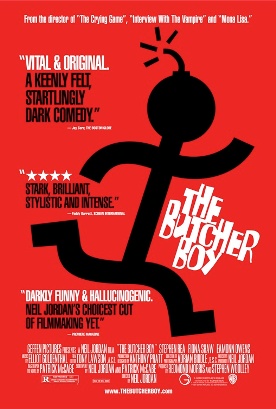America’s Heart and Soul
You know those commercials that run week after week on the Sunday morning talk shows when nobody else wants to buy ads — the ones for for IBM or ADM or Xerox or some brokerage house which peddle uplift as a way of burnishing the corporate image? Always somebody is following his or her dream, or families are smiling and hugging each other, or perhaps wiping away a silent tear, or a child is doing something unbearably cute, and it’s all meant to suggest that somehow it is the company that is making these things happen.
Well, this is pretty much the spirit in which Lewis Schwarzberg’s documentary, America’s Heart and Soul has been made. Only the company which is asking us to pat it on the back is America itself.
I’m sure I don’t speak for everyone when I say this, but I resent this kind of enforced patriotism, whether it is corporate or national. I have nothing but the highest regard both for Xerox and for the USA, but somewhere deep inside me the cynic whispers that were either or both of them as vicious and nasty as I believe them to be good, the pictures would be the same. And there must be something wrong with them if they have to resort to such emotional manipulation. But sometimes it seems that, in the age of advertising and PR, not allowing oneself to be manipulated is itself almost an unpatriotic act. It seems to me that you don’t have to be a post-modern ironist to want to fight this tendency.
Those who don’t choose to resist might like to know that Mr Schwarzberg’s cavalcade of American vignettes includes a dried-out alcoholic cowboy, a Louisianan musician who claims to be “a Neanderthal reincarnated to play Cajun music,” an old black woman who still lives for her church choir and that old-time gospel music and an Appalachian wife who praises the self-discipline of her husband — visible out the window on his tractor — while she is at her weaving. Then there is the Vermont dairy farmer who acts in amateur theatricals, the California vineyard owner who smilingly assures us that Jesus liked a drink as well as he does and the young men from Waltham, Massachusetts who are trying to make it as rock musicians while holding down day-jobs as a car-wash manager and a truck-driver.
And so on and so forth. Any one of these thumbnail sketches, or of the dozen or so others that the movie has to tell, could form the basis of a movie in itself, but reduced in size and strung together as a series of relentlessly upbeat vignettes, they lose their power and become what we critics call sentimental. In fact, this is almost the definition of sentimental: skimming the fat of emotion from the stock that produces it — the Yiddish word is schmaltz — and trying to sell it as a nourishing dish on its own. It’s too rich for a properly cultivated taste, even that of an unashamed patriot.
Discover more from James Bowman
Subscribe to get the latest posts to your email.






